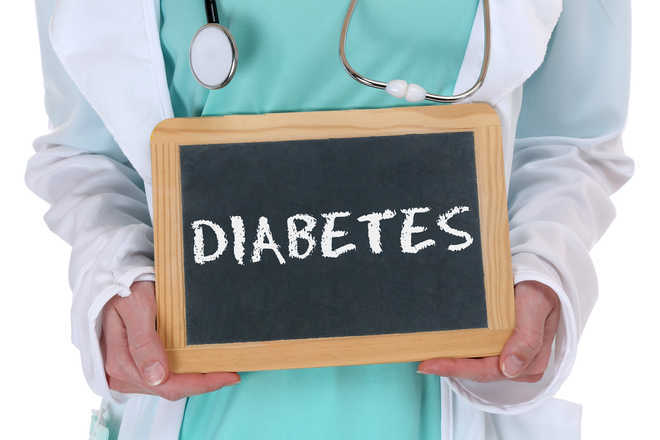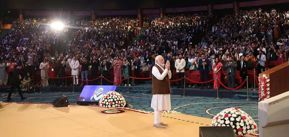
The linkage to the Green Revolution, unhealthy diet is only beginning to be understood.
New Delhi, June 11
A recent study suggesting that the poor are increasingly falling prey to diabetes is alarming since it is this class of people who cannot afford quality treatment and really depend on public distribution system through ration shops.
With the ration shops mostly distributing rice and wheat, these high carbohydrate cereals are propelling a new and very worrying wave of diabetes in the country.
The linkage to the Green Revolution, unhealthy diet is only beginning to be understood.
India is considered the diabetes capital of the world with about 70 million already afflicted by this disease.
But what is most worrying is that till now diabetes was considered to be a disease of the more affluent but a new paper in The Lancet Diabetes & Endocrinology says that India’s diabetes epidemic is shifting and is likely to disproportionately affect economically disadvantaged groups.
The researchers say the findings should cause concern in a country where most treatment costs are paid out-of-pocket by patients, and highlight the urgent need for effective prevention measures.
“This trend is a matter of great concern because it suggests that the diabetes epidemic is spreading to individuals who can least afford to pay for its management,” said RM Anjana, lead author of the study, Vice President, Madras Diabetes Research Foundation.
The Indian Council of Medical Research-India Diabetes (ICMR-INDIAB) study is the largest nationally representative study of diabetes in India and includes data from 57,000 people across 15 states.
Jitendra Singh, Minister of State in the Prime Minister’s Office and also a diabetologist, says “every third or fourth patient visiting a hospital or health care centre for any clinical complaint happens to be a diabetic”.
He adds that with India today comprising nearly 70 per cent of population which is below 40 and at the same time, the rapidly spreading diabetes in young poses a huge challenge.
The genesis of the unfolding diabetes epidemic has its roots in the way the country has progressed--a food-starved country has become a food surplus country--and this happened due to great strides made by the Green Revolution.
But the Green Revolution accelerated growth only for the wheat and rice crops. It is these high glycaemic value cereals that then became the backbone of the Public Distribution System; as a consequence over the last few decades a whole generation of Indians has grown up eating rice and wheat as the primary sources of energy.
In traditional Indian eating habits, what are unfortunately dubbed coarse cereals had a preponderance.
Millets, jowar, sorghum, red rice and brown rice were the preferred foods but when the PDS flooded the market with cheap polished rice and wheat, not only did these healthier cereals slowly die out but they even became un-remunerative for the farmers. This vicious cycle is today fuelling an unfolding cyclone of diabetes.
Anjana says “unhealthy diet and physical in-activity alone contribute to half of the diabetes epidemic and to add to that the adoption of a westernised diet is accelerating the diabetes problem”.
Junk and fast food are now available in most urban slums and villages, pizzas, chowmein and momos are today common place on roadside eateries.
Anjana says “industrialisation, mechanisation, urbanisation and globalisation are all contributing to the diabetes bomb that is waiting to explode”.
According to the new study, the prevalence of diabetes across the five states they analysed was 7.3 per cent and rates varied from 4.3 per cent in Bihar to 13.6 per cent in Chandigarh.
Almost half of the people in the study did not know they had diabetes until they were tested.
On average, diabetes was twice as common in urban areas (11.2 per cent) compared to rural areas (5.2 per cent).
Overall, diabetes was more common among people with higher socio-economic status, compared to people with low socio-economic status. However, in urban areas in seven states--most of which rank among the more economically advanced states--diabetes was higher among people from low socio-economic status.
For example, in urban areas of Chandigarh, the rate of diabetes was 26.9 per cent for among people from low socio-economic background, compared to 12.9 per cent for people from high socio-economic backgrounds.
The changing lifestyle of Indians is making them move away from traditional healthy foods as Anjana says “the availability, accessibility and affordability of junk food is the biggest problem for India”.
Fortunately, Anjana says all of this can be reversed with the right kind of awareness and by making fruits, vegetables and healthy cereals all being made available in ration shops. PTI



























